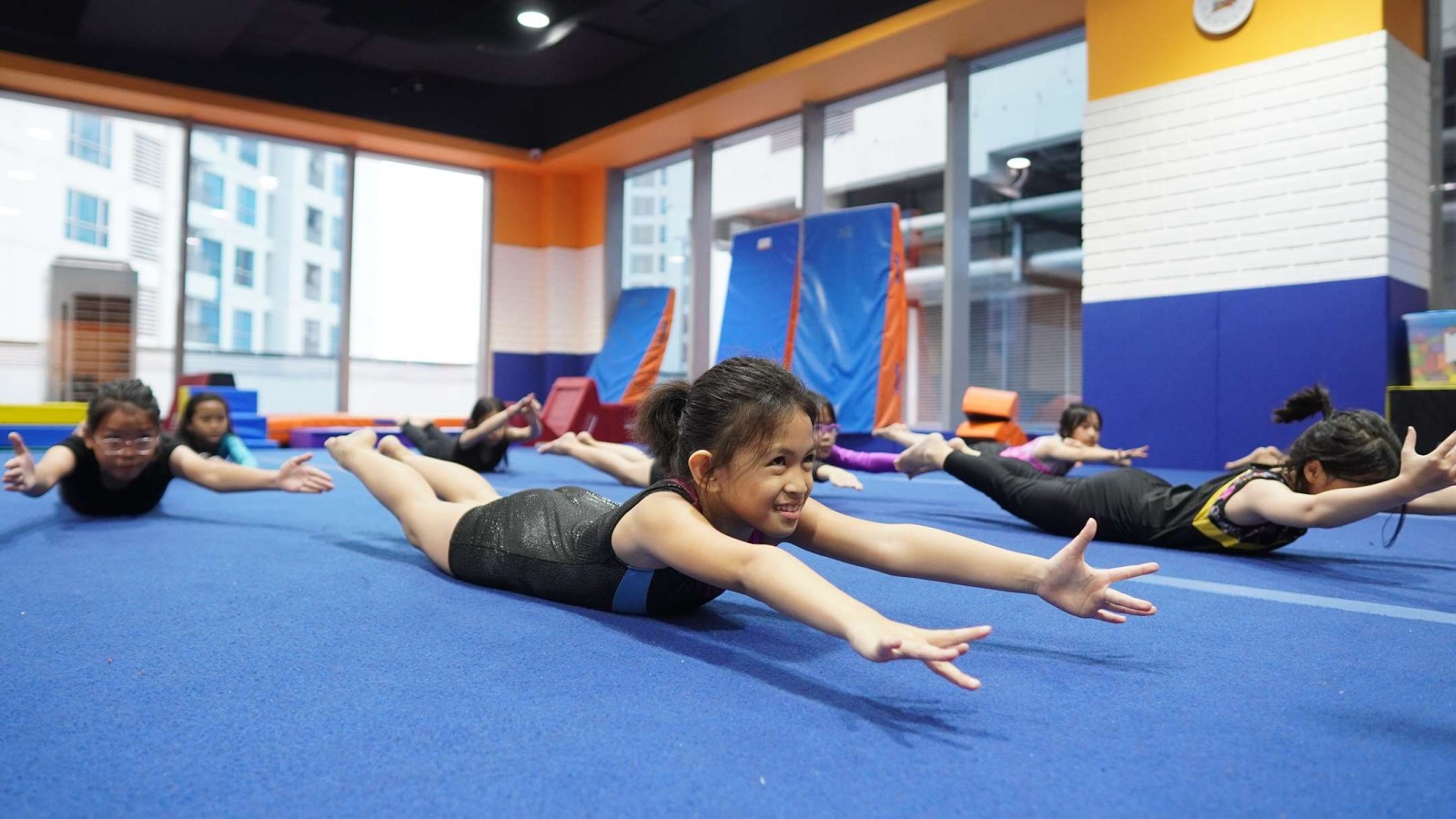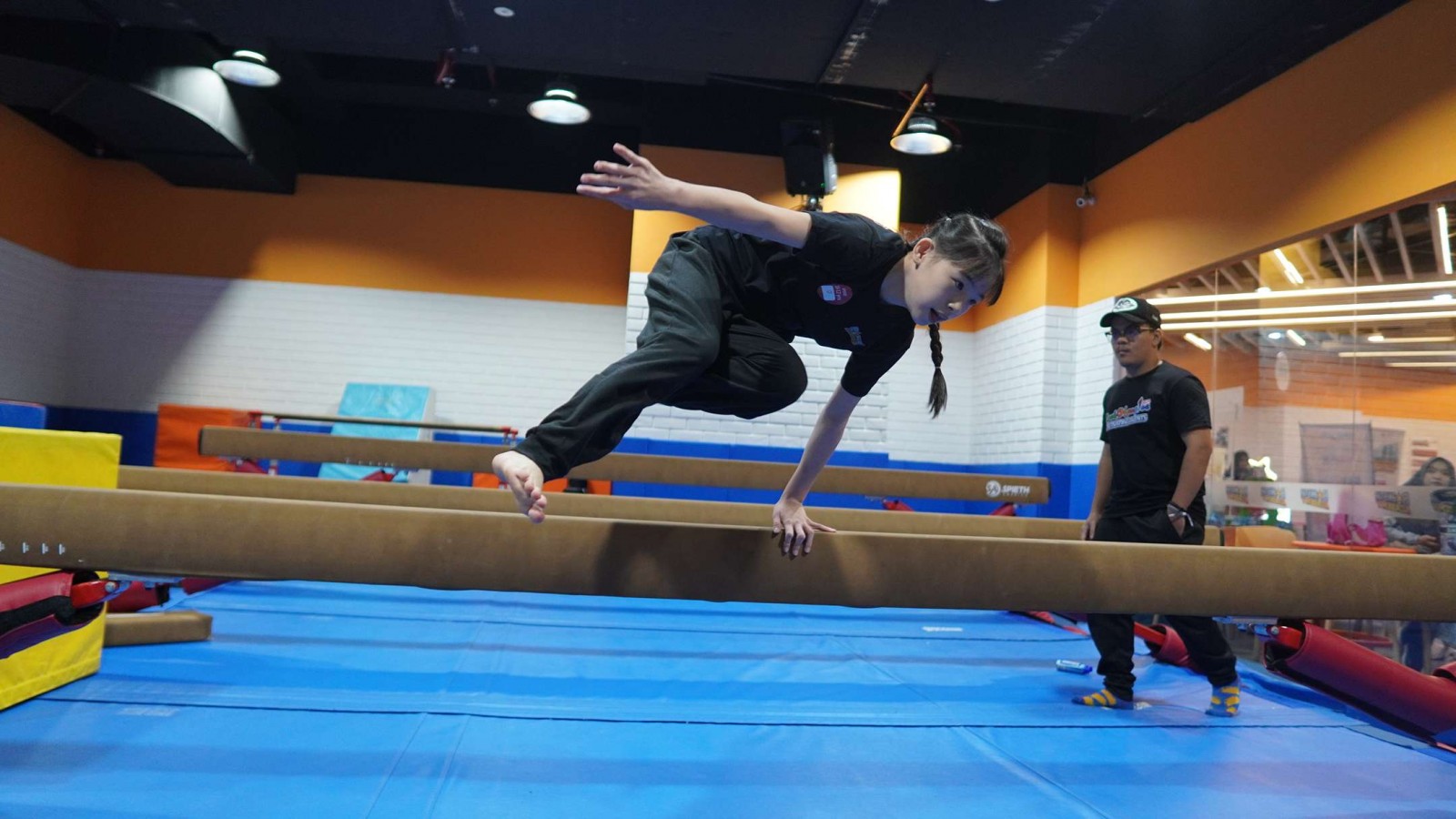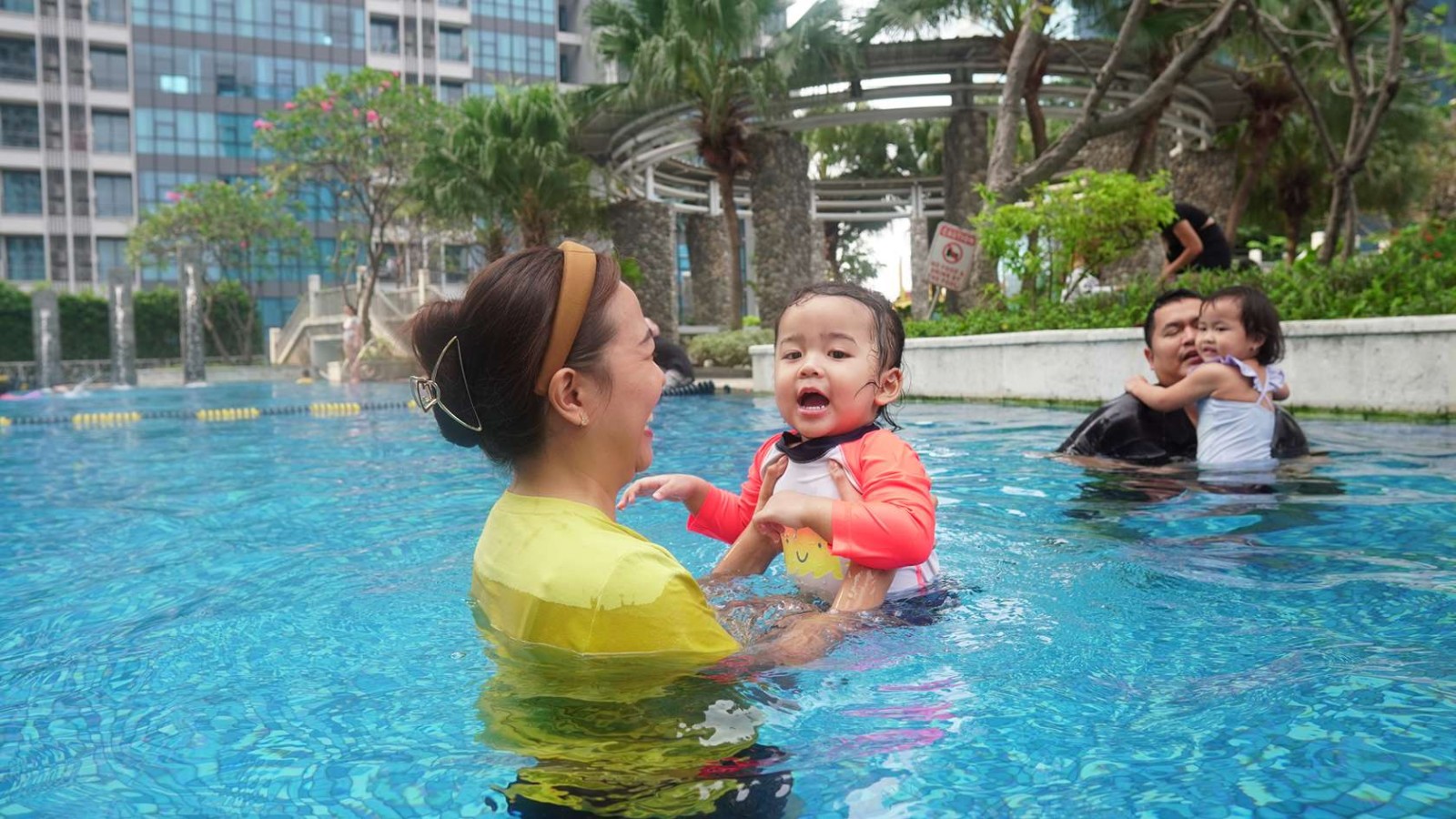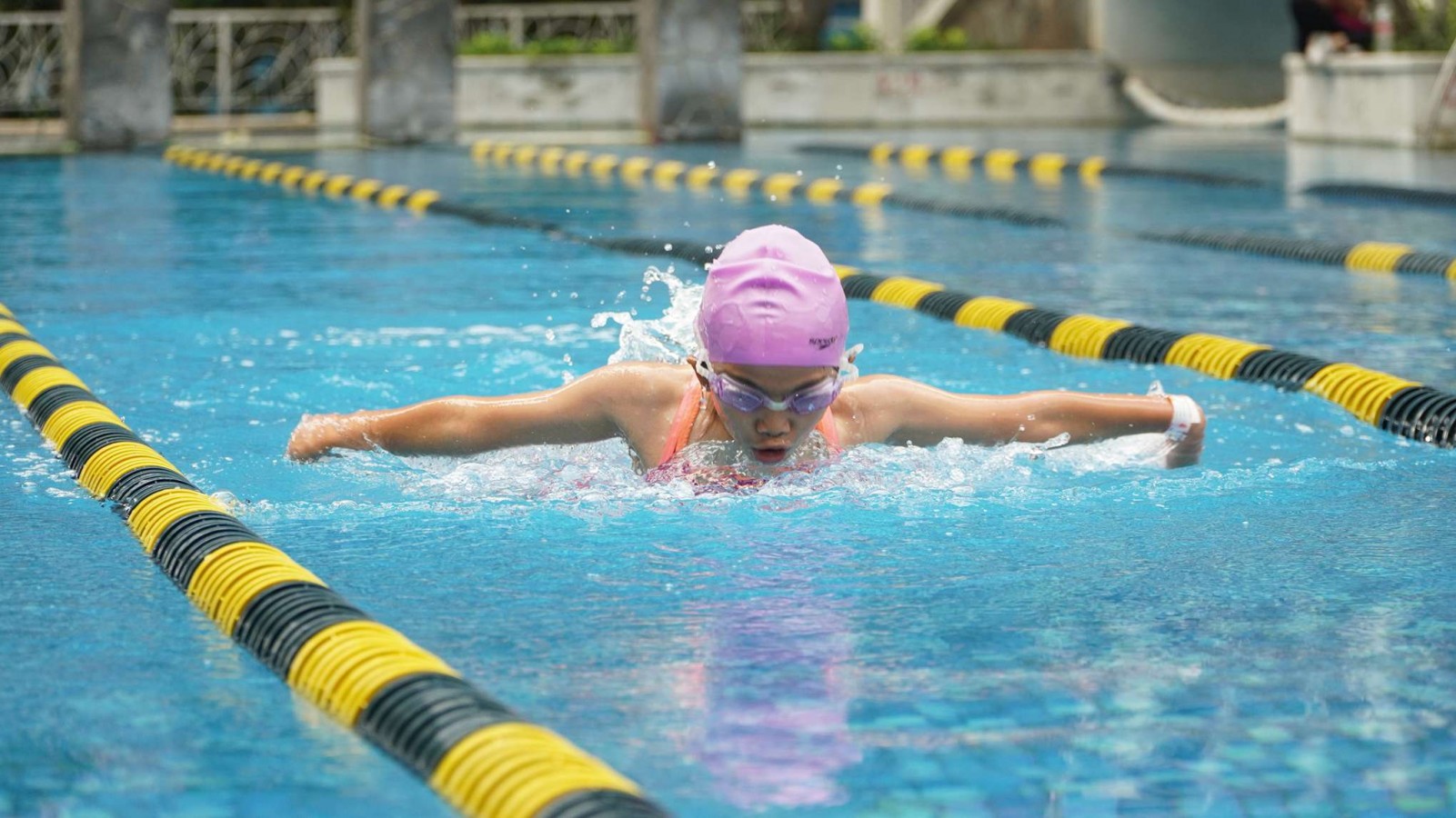Training Mental Toughness for Gymnasts to Conquer Challenges

Gymnasts face various challenges: rigorous training, injuries, competition pressure, and perfectionism. Developing mental toughness helps them push through these obstacles and perform their best. This article covers what mental toughness is, ways to train it in gymnasts, methods to boost confidence, and why focus is essential in gymnastics.
What is Mental Toughness?
Mental toughness is the ability to stay focused, determined, and positive even when facing difficulties. For gymnasts, it’s about maintaining composure, believing in their abilities, and continuing to strive toward their goals despite setbacks.
Mental toughness allows gymnasts to handle the pressure of competition, stay disciplined during long practice sessions, and recover quickly from mistakes.
Gymnasts with high mental toughness are more resilient to stress and pressure. They approach challenges with a positive outlook and know how to push through even when things get tough. These skills are invaluable, especially in a sport like gymnastics, where even a small lapse in focus can affect performance.
5 Essential Mental Toughness Skills for Every Gymnast
Here, we’ll explore five essential mental toughness skills every gymnast should develop to perform at their best and overcome obstacles with resilience and confidence.
1. Managing Anxiety and Nervousness
It’s natural for gymnasts to feel nervous, even at the highest levels. The real difference between those who excel and those who struggle under pressure is the ability to manage these nerves effectively.
For gymnasts who thrive, it’s not just about calming nerves. But it’s about dealing with anxiety constructively. Some experienced personal losses, injuries, or self-doubt, yet they pushed through and stayed focused on their goals.
By controlling anxiety and focusing on what they could influence, these gymnasts displayed true mental toughness.
2. Resilience and Grit
Gymnastics is a journey full of unexpected challenges, and resilient gymnasts know how to adapt when things don’t go as planned. Whether they’re recovering from an injury, facing an unexpected setback, or dealing with a canceled event, resilient gymnasts refocus and move forward instead of getting stuck.
Resilience means being able to bounce back quickly, while grit is the courage to keep going despite obstacles. Gymnasts with resilience and grit can ultimately get past any hurdle that comes their way, making this skill a critical part of mental toughness.
3. A Flexible Mindset
A flexible or growth-oriented mindset is the belief that effort leads to improvement. Gymnasts with this mindset understand that they can develop their skills with hard work and perseverance. Instead of feeling limited by setbacks or skills they haven’t yet mastered, they see these challenges as opportunities to grow.
By focusing on what they can control and learning from setbacks, gymnasts with a flexible mindset stay motivated and keep improving. This is a key trait for success in gymnastics and one that helps athletes reach new heights over time.
4. Confidence
Confidence is another core component of mental toughness. Gymnasts with high confidence feel secure in their skills and trust their ability to perform well. Confidence not only makes gymnasts feel happier and more positive about their abilities but also helps reduce fear, which is often the biggest barrier to trying new or difficult skills.
Confidence is like a muscle that needs regular exercise to grow stronger. By building confidence through small successes and consistent practice, gymnasts can perform with assurance and stay resilient in the face of setbacks.
5. A Mindset of Excellence
Embracing a mindset of excellence means striving to do one’s best, even when no one is watching. Gymnasts who adopt this approach put in the hard work not just to succeed, but because they value effort and self-discipline. They do their conditioning honestly, keep a positive attitude, and continually challenge themselves to go the extra mile.
These gymnasts don’t just act like champions when they’re successful; they maintain the behaviors and work ethic of a champion every day. This mindset of excellence is a defining aspect of mental toughness and helps gymnasts stay motivated and focused on their long-term goals.
Mental Toughness Training for Gymnasts
Training mental toughness is like training a muscle; it takes practice, discipline, and consistency. Here are some practical ways to develop mental toughness in gymnasts:
A. Goal Setting
Setting clear, achievable goals helps gymnasts focus on what they want to accomplish.
By setting short-term and long-term goals, gymnasts can measure their progress and stay motivated. Goals should be realistic but challenging, pushing gymnasts to improve without overwhelming them.
A short-term goal could be mastering a specific move by the end of the week, while a long-term goal could be winning a specific competition.
B. Visualization
Visualization, or mental imagery, involves imagining oneself performing a skill perfectly. By visualizing routines or specific skills, gymnasts can mentally prepare for challenges. Visualization helps gymnasts feel more confident and comfortable with their routines, reducing anxiety during actual performances.
As a tip, you can encourage gymnasts to spend a few minutes each day visualizing their routine from start to finish, including how they’ll handle any difficult moves.
C. Positive Self-Talk
Self-talk is the inner dialogue that happens in a gymnast’s mind. Positive self-talk can boost confidence and reduce anxiety. Phrases like “I can do this” or “I am strong and capable” can replace negative thoughts with a more positive mindset.
Tip: Write down positive affirmations and read them before practices or competitions.
D. Handling Mistakes
Mistakes are inevitable in any sport, but the way gymnasts respond to mistakes can make all the difference. Teaching gymnasts to view mistakes as learning experiences helps them bounce back quickly. Instead of dwelling on an error, they can focus on improving.
After a mistake, remember to take a moment to reflect on what went wrong and decide on one or two steps to prevent it in the future.
E. Mindfulness and Relaxation Techniques
Gymnastics demands intense focus, and learning to stay calm is essential. Techniques like deep breathing, meditation, or progressive muscle relaxation can help gymnasts calm their minds, especially before a performance.
Before a competition, encourage gymnasts to take a few deep breaths, visualize a calm place, and focus on relaxing their muscles.
F. Building Routine Resilience
During practices, create scenarios that mimic competition pressure, such as performing in front of a small audience or trying to complete a routine under a time limit. This exposure helps gymnasts become comfortable with high-pressure environments, making actual competitions feel less intimidating.
Ready to Start Mental Toughness Training For Gymnasts?
Building mental toughness in gymnastics is a journey that not only strengthens physical abilities but also helps young athletes gain mental benefits through gymnastics. If you want to help your child build these valuable skills, enrolling them in a structured gymnastics program can make a huge difference.
Rockstar Academy, known as the best Sports & Performing Arts Academy, offers a comprehensive gymnastics curriculum where your child can participate in Gymnastics Testing to track their progress and even prepare for national and international competitions.
Additionally, our gymnastics program proudly offers the Dream Team, an elite Competitive Sports Program designed to help student-athletes reach their full potential in both sports and life.
Open to boys and girls, this program features 180 minutes of high-intensity training led by professional, experienced instructors. The Dream Team provides a platform for talented and motivated athletes to cultivate a champion mindset by competing in national and international competitions.
Rockstar Academy also holds Gymnastics Elite Championships and RockOlympics to encourage excellence, teach discipline, and foster good sportsmanship, helping kids learn how to handle both wins and losses with grace.
Plus, they offer a free trial class so you can see if their program is the right fit! Reach out to Rockstar Academy to learn more and give your child the tools to grow stronger both in and out of the gym.
FAQ
What is mental toughness in gymnastics?
Mental toughness in gymnastics is the ability to stay positive, focused, and resilient, even under pressure or after mistakes. It includes managing stress, keeping composure, and having the confidence to perform at one’s best.
How can visualization help a gymnast?
Visualization helps a gymnast mentally prepare for their routines by imagining the process and outcome in their minds. This reduces anxiety and helps them feel more comfortable performing difficult skills.
Why is confidence important for gymnasts?
Confidence allows gymnasts to perform without hesitation. When they believe in their abilities, they are more likely to complete skills successfully, stay calm, and recover quickly from setbacks.
What are some quick tips for improving focus in gymnastics?
Practicing mindfulness techniques like deep breathing, having pre-performance rituals, and maintaining a positive mindset can improve focus. Setting goals for each practice session can also help gymnasts stay engaged.



